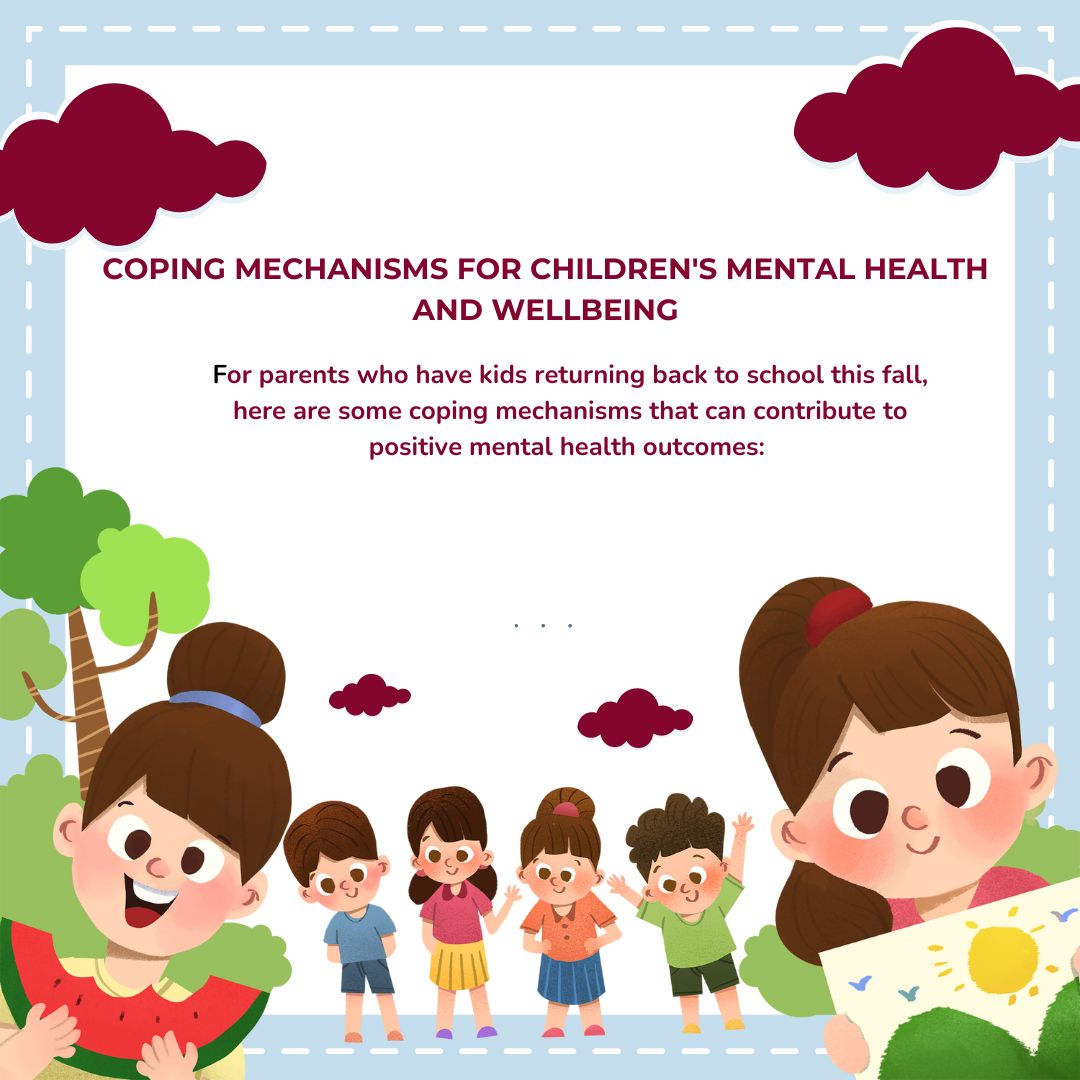Effective Strategies to Combat the Effects of Covid 19 on Children’s Mental Health and Well-Being8/31/2023  The continued consequences of the COVID-19 epidemic on children's health and wellbeing are causing parents to prepare for the return to school with a distinct set of worries. Several studies have examined the numerous ways that the pandemic has affected young children's life and it may feel like we’re inching towards a new normal but the pandemic exacerbated a behavioral and mental health crisis that has only grown. The pandemic has undeniably opened our eyes to numerous disruptions in our daily lives. However, even before the pandemic, the significance of children's mental health is evident. As we navigate the challenges of the present and future, it is essential to remember that safeguarding the well-being of our youth is a continuous responsibility. Just as COVID-19 emphasized the importance of being vigilant, protected, and safe, we must extend these principles to ensure the mental health of children, reinforcing a holistic approach to resilience and well-being in all aspects of life- covid-19 or not! As stress and anxiety levels increased because of isolation, interrupted routines, and difficulties with distant learning- we’ve considered some strategies for parents to consider that can contribute to positive mental health outcomes: Self-care: Parenting is a daily struggle, and when faced with the realities of COVID-19, particularly getting the virus, it may be a cause of worry and anxiety all the time. The first and most important step in helping children is to look after your own needs. Self-care is not selfish, and it assists caregivers to be a steady, calming, and soothing parent for their children. Encouraging Open Conversations: Emotional regulation can be aided by promoting open communication at home, remaining calm and focused throughout dialogues, and routinely checking in with kids to see how they're doing. Young children need to see from their parents that everything will be well in the end. Since children frequently pick up on emotional cues from adults, it's crucial to include their teachers and other significant adults in the conversation, listen to their worries, and reassure them. Reducing Screen Time and Encouraging Physical Activities: The general recommended screen time for children between the ages of 5 and 17 is no more than two hours per day, and considerably less for children under the age of five. But during the epidemic, this number considerably rose. As a result, it's crucial for caregivers to get youngsters involved in creative activities like playing and sketching. Now that the pandemic restrictions have been lifted, it's also a good idea to get outside and indulge in more physical activity. This enables kids to express challenging emotions like anger, fear, or grief in healthy ways. Seeking professional help when necessary: Parents and teachers can easily spot early indicators of mental health problems such as hostility, clinging behavior, nightmares, poor focus, emotional outbursts, lack of appetite, and more. As a result, the pandemic's long-term effects on mental health can be avoided by obtaining professional assistance when necessary and implementing early intervention techniques. Children have always exhibited incredible resilience in the face of uncertainty and change. Positive environments at home and in school will help the majority of people cope. So let's celebrate the resiliency and adaptability our kids have demonstrated as we get ready to send them back to school. We can all work together to navigate the ongoing effects of COVID-19 and support our kids in thriving in the upcoming school year by putting their physical health first, supporting their emotional wellbeing, and encouraging their academic development! By Ameena Qayyum Communications Coordinator
0 Comments
|
Archives
July 2024
Categories |
|
© Asian Women for Health. All rights reserved.
|
WHAT WE DODONATEcontact us |

 RSS Feed
RSS Feed